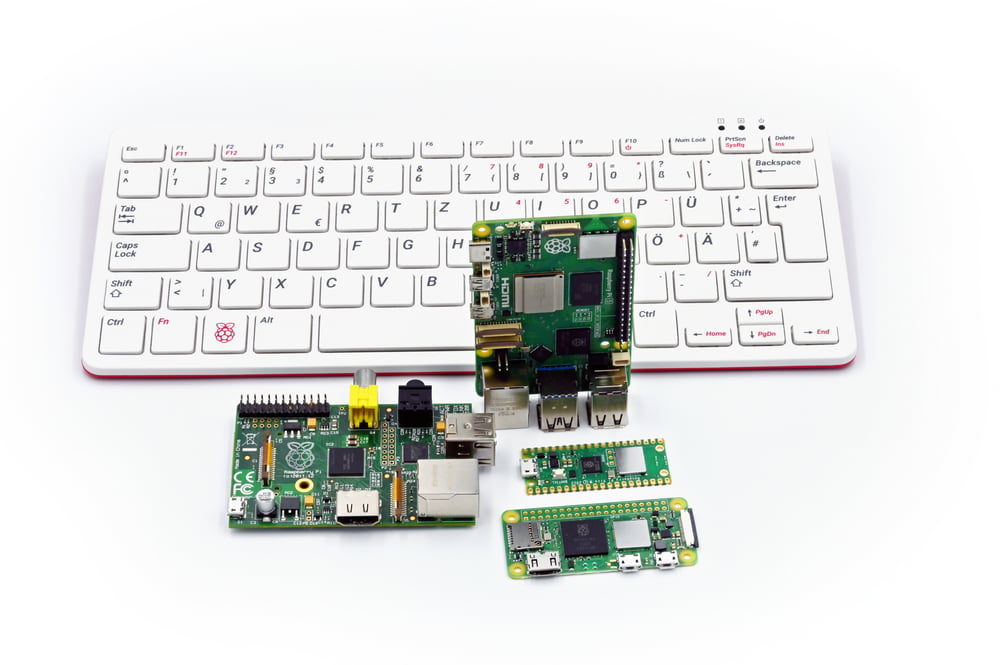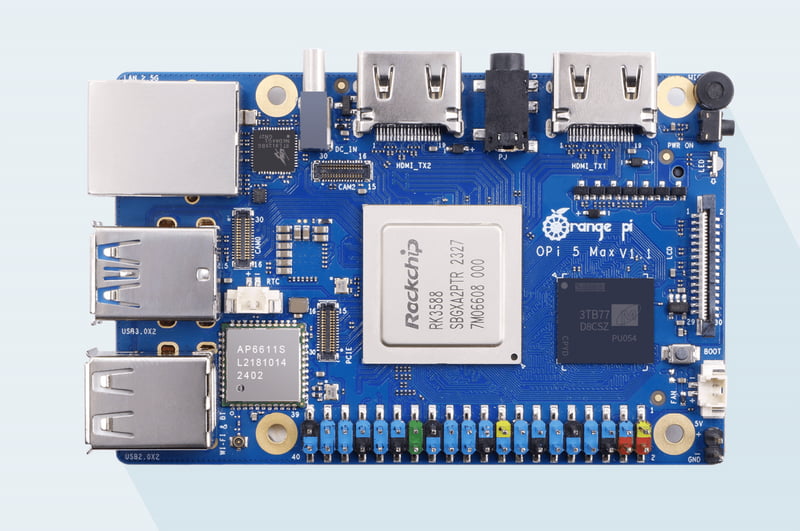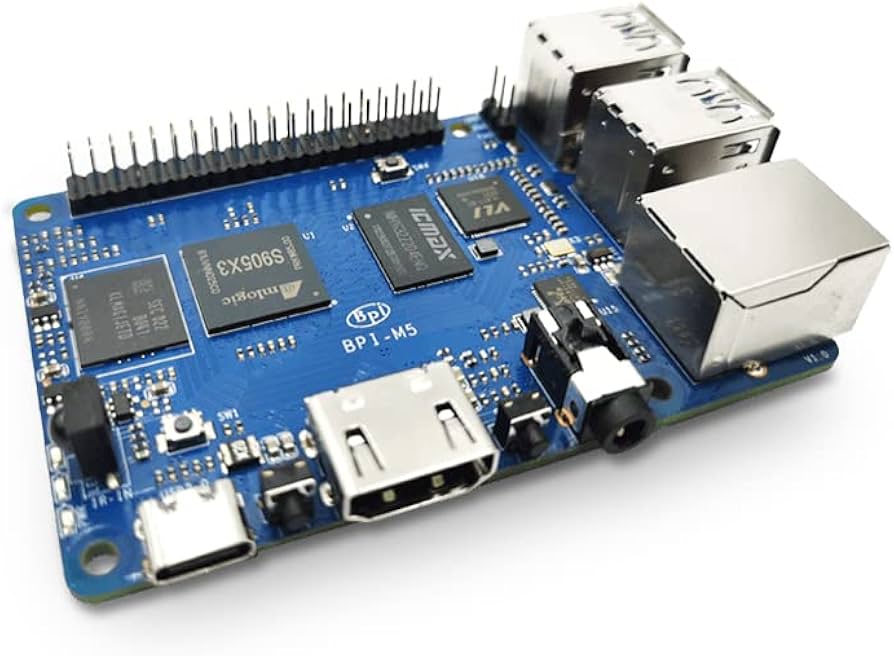Single-board computers (SBCs) like Raspberry Pi, Orange Pi, and Banana Pi have transformed the landscape of computing, offering powerful yet affordable solutions for hobbyists, educators, and industry professionals alike. Compact, versatile, and energy-efficient, these devices cater to diverse use cases, from simple DIY projects to advanced industrial applications.
Among these three leading brands, Raspberry Pi stands out for its emphasis on education, widespread adoption, and robust community support. Orange Pi, with its competitive pricing and impressive hardware specifications, appeals to those seeking performance and value. Meanwhile, Banana Pi aims to strike a balance between affordability, performance, and versatility, offering options for both beginners and experienced users.
This article dives into a detailed comparison of these three SBC brands, analyzing aspects such as pricing, hardware specifications, software support, availability, and community engagement. Whether you’re a student, an IoT enthusiast, or a professional developer, understanding the strengths and weaknesses of these SBCs will help you make an informed decision for your next project.
Availability and Pricing
When deciding between Raspberry Pi, Orange Pi, and Banana Pi, availability and pricing are key factors to consider.
- Raspberry Pi has gained immense popularity, but its demand often exceeds supply, making it harder to find at retail prices. Scalpers and shortages frequently drive up costs. While it offers reliable performance and software support, its higher price tag might not be feasible for budget-conscious buyers.
- Orange Pi stands out as the most affordable choice. Models like the Orange Pi 5 deliver impressive specs at a fraction of Raspberry Pi’s cost. Its affordability makes it a favorite among users who can manage with less polished software and community resources.
- Banana Pi, as a mid-range option, balances affordability and features. With moderate pricing and decent hardware, it appeals to users looking for versatility without breaking the bank. Availability is usually more consistent than Raspberry Pi, making it a practical alternative for many.
Ultimately, if affordability is a priority, Orange Pi offers the best value. For those who need better software and community support, Raspberry Pi is worth the investment—if you can find one at retail prices. Banana Pi provides a middle-ground solution for projects requiring reliable hardware without premium costs.

Build Quality and Hardware Specifications
The hardware specifications and build quality of Raspberry Pi, Orange Pi, and Banana Pi cater to different priorities, from reliability to raw power.
- Raspberry Pi is renowned for its reliability and well-tested designs. While it offers decent performance, its hardware capabilities can lag behind competitors at similar price points. For instance, models like the Raspberry Pi Zero 2W are excellent for lightweight projects but lack the power found in many newer alternatives.
- Orange Pi excels in delivering robust hardware at highly competitive prices. Its boards often feature quad-core CPUs and other advanced features for less than the cost of a Raspberry Pi Zero 2W. However, some users report inconsistent quality control, which might require careful selection or troubleshooting.
- Banana Pi strikes a balance between competitive specifications and moderate build quality. For example, the Banana Pi M5 is a solid choice for IoT applications and NAS setups, offering quad-core CPUs, eMMC storage, and USB 3.0 support. However, the variability in build quality means it may not always match the reliability of Raspberry Pi.
If you prioritize hardware power for the price, Orange Pi offers the best bang for your buck, albeit with potential quality control risks. For reliability and well-documented designs, Raspberry Pi remains the gold standard, especially for critical or long-term projects. The Banana Pi M5 is an appealing option for users looking for versatile performance, particularly in IoT or storage solutions, but its build quality may require some trade-offs.
Software Support and Compatibility
When comparing Raspberry Pi, Orange Pi, and Banana Pi, software support and compatibility reveal significant differences in ease of use and long-term viability.
- Raspberry Pi leads the market in software support, offering unparalleled compatibility and stability. Its official OS, Raspbian (now Raspberry Pi OS), is highly optimized for its hardware and frequently updated. Raspberry Pi is ideal for beginners, with educational tools, a large library of tutorials, and pre-built OS images for quick deployment. This ecosystem makes it a top choice for users seeking a seamless experience.
- Orange Pi faces limitations in official software support, often requiring users to turn to third-party solutions like Armbian for stability and performance. OS compatibility can be hit-or-miss, with some devices needing significant tweaks to function correctly. This makes Orange Pi better suited for experienced users comfortable with troubleshooting and custom setups.
- Banana Pi shares similar challenges with Orange Pi, relying heavily on Armbian for a reliable operating system. Many users report issues with outdated or poorly maintained images, often hosted on obscure sources. As highlighted in online discussions, these hurdles can frustrate users looking for quick and stable deployment.
Raspberry Pi offers the most beginner-friendly and dependable software environment, backed by extensive community and official support. Orange Pi and Banana Pi require more technical expertise due to limited official resources, making them less suitable for novices. However, the community-driven efforts like Armbian help bridge the gap for users willing to invest time in customization and troubleshooting.

Community and Documentation
The strength of a platform often depends on its community and the quality of its documentation. Raspberry Pi, Orange Pi, and Banana Pi exhibit distinct levels of support in this regard.
- Raspberry Pi boasts an extensive global community, making it the gold standard for user support and shared knowledge. With active forums, countless tutorials, and a focus on education, Raspberry Pi users—from beginners to advanced hobbyists—have access to a rich ecosystem of resources. Its strong emphasis on learning and accessibility ensures users can easily find solutions to common problems or guidance for new projects.
- Orange Pi has a relatively smaller community and less active forums, but support exists through platforms like Armbian. While it caters better to experienced users, the documentation is often fragmented, and beginners may struggle to find comprehensive guides or troubleshooting help. Its community, though smaller, often shares highly technical and advanced solutions, making it ideal for those already comfortable with hardware and OS customization.
- Banana Pi suffers from sparse and disorganized community support. Documentation is limited, and many users rely on forums like Reddit or Armbian for help. While support for Armbian has grown, the lack of structured and official resources makes troubleshooting and learning more challenging, particularly for novice users.
Raspberry Pi is unmatched in community and documentation, making it the go-to choice for learners and developers seeking extensive support. Orange Pi and Banana Pi are better suited for technically skilled users, but their limited community engagement and fragmented documentation can pose significant barriers for less experienced users.
Performance and Use Cases
When it comes to performance, each board caters to specific user needs, making them ideal for different scenarios.
- Raspberry Pi offers a balanced blend of performance and reliability, making it a trusted choice for education, IoT projects, and embedded systems. It excels in industrial-grade deployments where consistent performance over long durations is critical. Raspberry Pi’s ecosystem ensures it remains a safe choice for users who prioritize dependability and support.
- Orange Pi provides a remarkable performance-to-cost ratio, often delivering higher specs at a fraction of the cost of its competitors. It is ideal for personal projects and experimental setups where flexibility and power are prioritized over industrial-level reliability. While some users may hesitate due to its association with Chinese manufacturers, the boards themselves have garnered positive feedback for their capabilities. Orange Pi is perfect for tech enthusiasts seeking affordable, high-performance hardware for smaller-scale projects.
- Banana Pi strikes a balance between cost and features, making it suitable for hobbyists and tinkerers. Its hardware is versatile, supporting various applications like DIY servers, media centers, or custom IoT devices. Though not as refined in terms of software and documentation as Raspberry Pi, Banana Pi remains a powerful and affordable option for users exploring new ideas and small-scale deployments.
While Raspberry Pi is the gold standard for reliability and long-term use, Orange Pi and Banana Pi are excellent choices for personal experiments and smaller-scale projects where cost and performance take precedence over durability. These boards open doors for innovation, offering affordable and flexible solutions that cater to a wide range of DIY and experimental needs. Despite concerns about their origins, no data privacy issues have been reported, and with user discretion, they can be a fantastic addition to any maker’s toolkit.

Pros and Cons Overview
Raspberry Pi
What I like:
- Best software and community support, ensuring that even beginners can easily get started.
- Extremely reliable build quality, making it suitable for long-term and industrial use.
- Robust ecosystem with educational resources, tutorials, and a large user base.
What I dislike:
- Higher price compared to its competitors, especially when considering similar performance.
- Hardware specifications are slightly behind other boards like Orange Pi and Banana Pi in terms of raw processing power for the price.
Orange Pi
What I like:
- Affordable with excellent performance for the price, offering features like quad-core CPUs at a lower cost than Raspberry Pi.
- Great for experienced users or those looking to experiment with advanced projects.
What I dislike:
- Documentation and community support are lacking, making it harder for beginners or those new to DIY hardware.
- Limited operating system options and compatibility challenges, requiring advanced knowledge to troubleshoot.
Banana Pi
What I like:
- Positioned in the mid-range price category, offering solid hardware specs for most personal projects.
- Versatile for various use cases, including hosting servers, IoT projects, and media centers.
- Good balance of performance and price, catering to hobbyists and experimenters.
What I dislike:
- Sparse support, heavily relying on third-party forums and community-driven solutions like Armbian.
- Documentation can be incomplete or outdated, requiring users to seek help from niche online communities.
My Final Verdict
When it comes to a board that can be blindly purchased without much concern, the Raspberry Pi is the clear winner. It offers outstanding software support, a reliable build quality, and a huge community, making it a great choice for both beginners and professionals. With its long track record and versatility, you can’t go wrong with a Raspberry Pi, especially for projects that require stability and long-term reliability.
However, my personal favorite is the Orange Pi due to its impressive value for money. While it may require a bit more technical know-how and offers less community support, the performance you get for the price is hard to beat. It’s perfect for those who enjoy experimenting with projects and need a powerful board without breaking the bank. If you’re willing to navigate through some of the challenges, Orange Pi is an excellent option for users looking for cost-effective performance.

